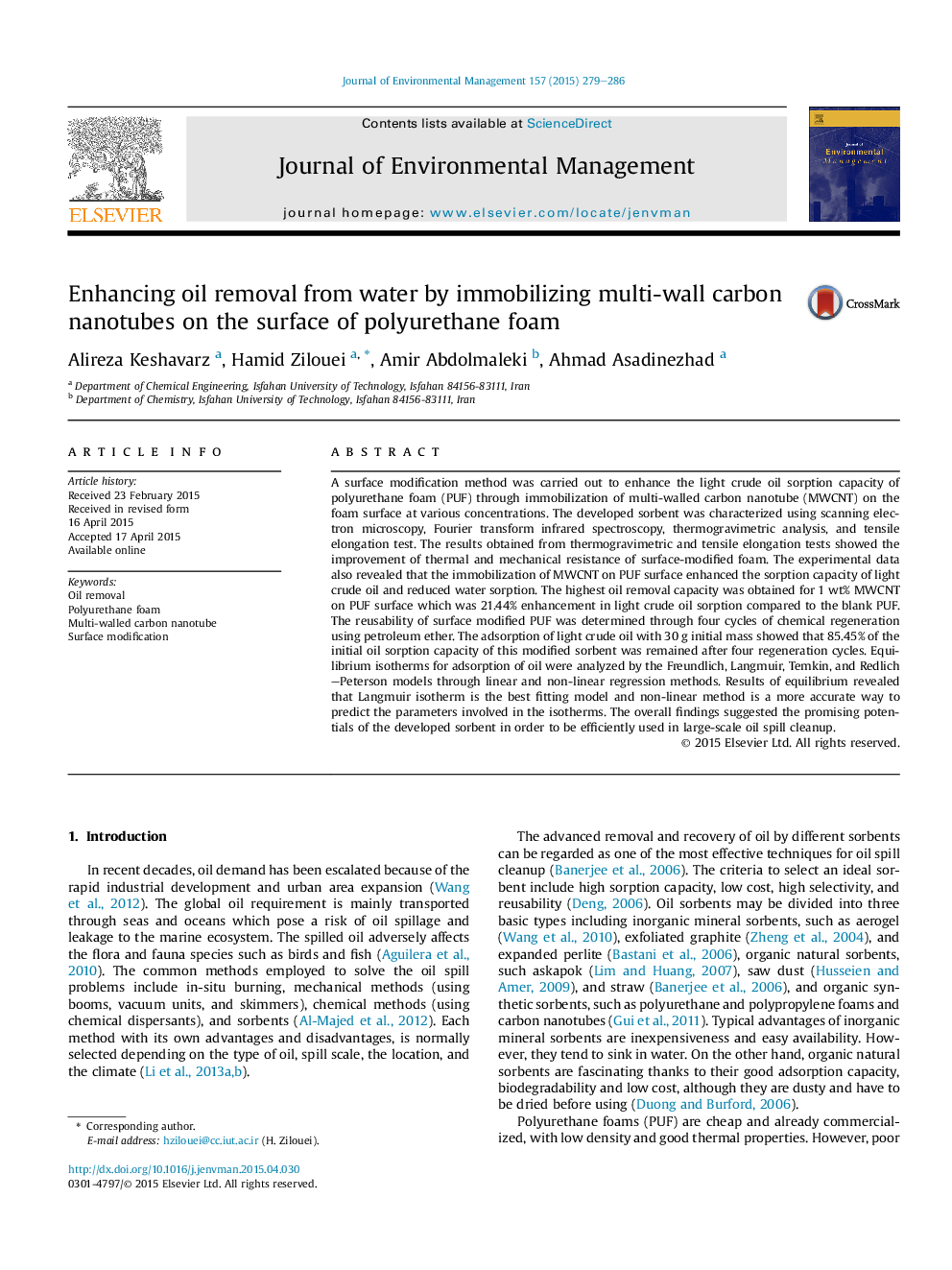| Article ID | Journal | Published Year | Pages | File Type |
|---|---|---|---|---|
| 7482280 | Journal of Environmental Management | 2015 | 8 Pages |
Abstract
A surface modification method was carried out to enhance the light crude oil sorption capacity of polyurethane foam (PUF) through immobilization of multi-walled carbon nanotube (MWCNT) on the foam surface at various concentrations. The developed sorbent was characterized using scanning electron microscopy, Fourier transform infrared spectroscopy, thermogravimetric analysis, and tensile elongation test. The results obtained from thermogravimetric and tensile elongation tests showed the improvement of thermal and mechanical resistance of surface-modified foam. The experimental data also revealed that the immobilization of MWCNT on PUF surface enhanced the sorption capacity of light crude oil and reduced water sorption. The highest oil removal capacity was obtained for 1Â wt% MWCNT on PUF surface which was 21.44% enhancement in light crude oil sorption compared to the blank PUF. The reusability of surface modified PUF was determined through four cycles of chemical regeneration using petroleum ether. The adsorption of light crude oil with 30Â g initial mass showed that 85.45% of the initial oil sorption capacity of this modified sorbent was remained after four regeneration cycles. Equilibrium isotherms for adsorption of oil were analyzed by the Freundlich, Langmuir, Temkin, and Redlich-Peterson models through linear and non-linear regression methods. Results of equilibrium revealed that Langmuir isotherm is the best fitting model and non-linear method is a more accurate way to predict the parameters involved in the isotherms. The overall findings suggested the promising potentials of the developed sorbent in order to be efficiently used in large-scale oil spill cleanup.
Related Topics
Physical Sciences and Engineering
Energy
Renewable Energy, Sustainability and the Environment
Authors
Alireza Keshavarz, Hamid Zilouei, Amir Abdolmaleki, Ahmad Asadinezhad,
